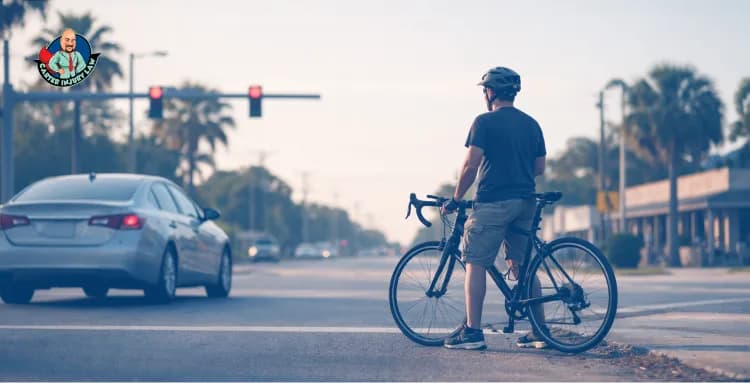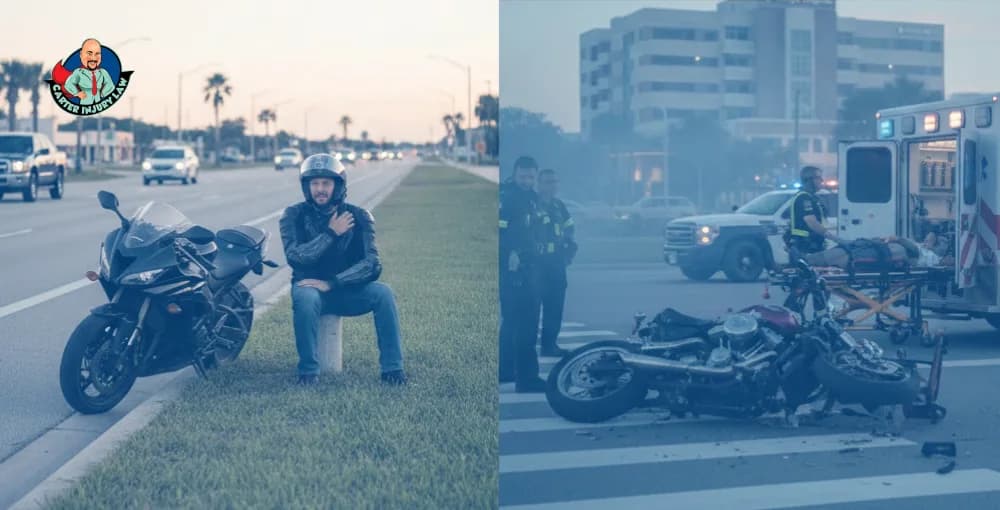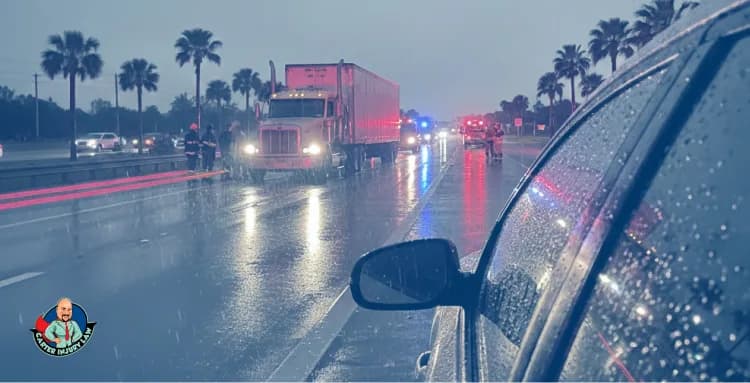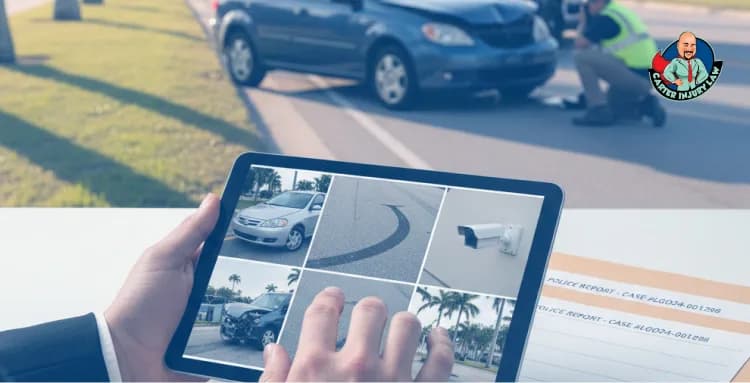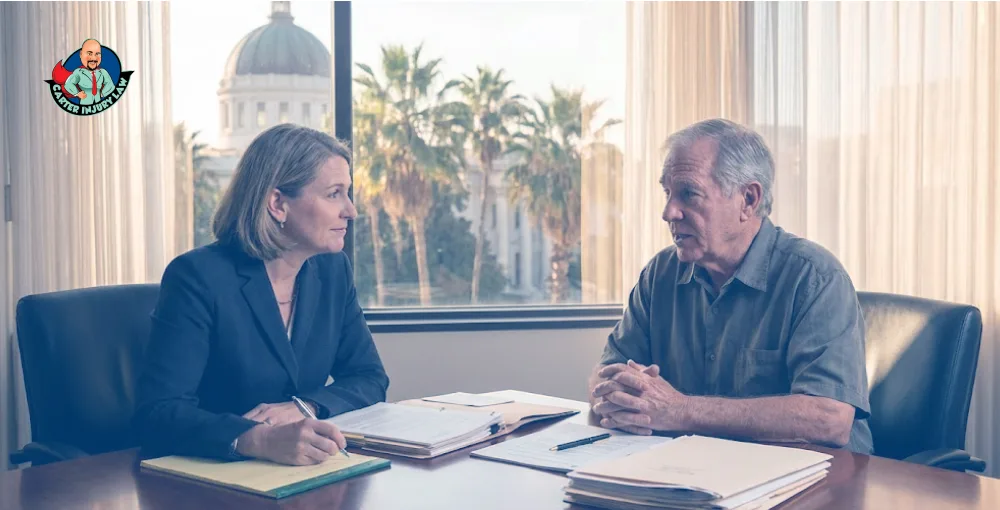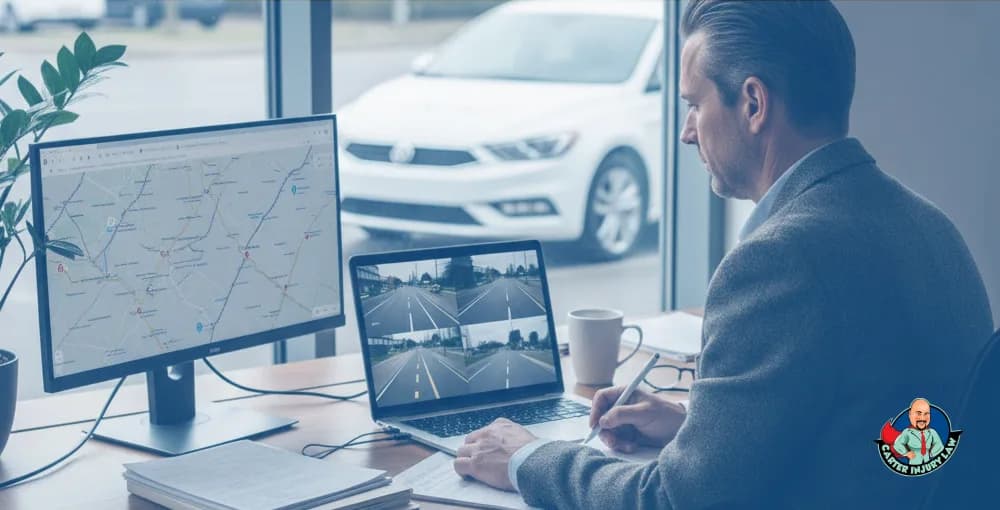When someone calls me after an RV accident, the first thing I usually hear is how overwhelming it all feels. One moment you are enjoying the road, the next you are dealing with police reports, insurance adjusters, and injuries that can change your life.
I have guided many clients through this process, and I can tell you that Florida’s system is not always as simple as people think. Insurance might cover some of your losses, but RV accidents bring complications that most drivers never see coming. And what happens when the bills keep piling up and the insurance company says you have already been paid enough?
(1) What Happens Right After the Accident
I always tell clients to call the police immediately, even if the other driver insists you can “work it out” on your own. Florida law requires a report if there are injuries, deaths, or significant property damage, and with an RV that threshold is almost always met. That report becomes a critical piece of evidence later.
If you are physically able, take photos of everything. RVs are large vehicles, and the damage they cause can be very different from what you see in a standard car crash. Capture wide shots of the accident scene, skid marks, traffic signs, and close-ups of the vehicles involved.
Get names and contact information from any witnesses. These small details often end up being the proof that tips the scales in your favor when the insurance company tries to argue against you.
I also emphasize how important it is to get medical help, even if you feel fine right now. RV accidents can involve heavy impact, and injuries like whiplash, concussions, or internal trauma do not always show immediate symptoms. Seeing a doctor right away not only protects your health, it also creates a medical record that links your injuries directly to the accident. Without that documentation, insurance companies often argue your injuries came from somewhere else.
When you leave the scene, your legal journey has already started. What seems like a routine report and a doctor’s visit will later form the backbone of your claim. And that is when Florida’s no-fault rules come into play, rules that confuse a lot of people until they are the ones facing the fine print.
(2) Why $10,000 PIP Coverage Often Isn’t Enough
Florida is what we call a no-fault state. This means your own insurance pays first for your medical bills and some lost wages, no matter who caused the crash. It comes through what is known as Personal Injury Protection, or PIP coverage. By law, every Florida driver is required to carry at least $10,000 in PIP benefits.
Now here is where the problem starts. Ten thousand dollars disappears fast when you are dealing with hospital stays, surgery, or months of physical therapy. And with RV accidents, the injuries are usually more severe than what you would see in a simple fender bender. Broken bones, spinal injuries, even traumatic brain injuries are far too common.
That is why Florida law allows you to step outside the no-fault system if your injuries meet what is called the “serious injury threshold.” This threshold includes permanent injury, significant and permanent loss of bodily function, or scarring and disfigurement. Once you meet that standard, you can file a claim directly against the at-fault driver. That opens the door to recover damages beyond what PIP will cover, including pain and suffering, future medical costs, and lost earning capacity.
Insurance companies rarely explain this clearly. They may happily tell you PIP will cover you, but they will not volunteer that you have the right to pursue a bigger claim when your injuries are serious. This is where I step in, because knowing how and when to move beyond PIP can change the entire outcome of your case.
And once we go down that road, the focus shifts to evidence, and evidence is the fuel that keeps your case moving forward.
(3) The Evidence You Need to Protect Your RV Accident Claim
When it comes to RV accidents, evidence is everything. Without it, the insurance company controls the story, and trust me, their version is never designed to help you.
I tell my clients to save every piece of documentation connected to the crash. That means medical records, hospital bills, prescriptions, repair estimates, and even photos of your injuries as they heal. RV accidents often involve unique damage—slide-outs, electrical systems, water lines—and those repair estimates can highlight just how destructive the crash was.
Insurance companies will do everything they can to minimize your claim. Their job is not to be fair but to pay as little as possible. They might argue your injuries were pre-existing, downplay the severity, or even suggest you were partly at fault. That is why photographs from the scene and witness statements are so powerful. The more evidence we have, the harder it is for the insurance company to twist the facts.
We also bring in accident reconstruction experts when necessary, we work with medical professionals who can explain the long-term impact of your injuries, and we gather every detail that proves the harm you have suffered. Insurance companies respect preparation, because they know it means we are ready to take them to court if they refuse to be reasonable.
And that leads us to what happens when a settlement is not enough, and you have no choice but to push forward into litigation.
(4) When Insurance Won’t Settle, Here’s What Comes Next
Most RV accident cases in Florida settle before ever reaching a courtroom. However, a settlement only makes sense if it is fair. If the insurance company refuses to pay what you truly need to cover your medical care, your lost income, and the long-term effects of your injuries, then we take the next step.
Florida law gives you two years from the date of the accident to file a personal injury lawsuit. That deadline is called the statute of limitations, and if you miss it, your case is gone forever. I always prepare every case as if it will end up in front of a jury, even if we are still negotiating. That preparation alone often puts pressure on insurance companies to offer more, because they know we are not bluffing.
Litigation may sound intimidating, but most cases still resolve during the legal process, even after a lawsuit is filed. Going to trial is the exception, not the rule. However, being ready for trial is what gives us leverage. Discovery, depositions, and motions can all feel like a grind, but they are the tools that reveal the truth and force the other side to face it.
I walk clients through each step so nothing feels like a surprise. You do not have to face a powerful insurance company alone. My job is to make sure your story is heard, your evidence is respected, and your future is not written off with a lowball offer.
(5) How I Help Clients Fight for Full Recovery After an RV Crash
I have built my practice on guiding people through the toughest moments of their lives. My role is to protect your rights, fight for your recovery, and make sure the insurance companies do not take advantage of you. I know the tactics they use, and I know how to push back.
If you or a loved one has been involved in an RV accident in Florida, the clock is already ticking on your case. The sooner you get help, the stronger your claim will be. Evidence fades, witnesses forget, and insurance companies move quickly to close the door on you. That is why reaching out right away can make all the difference.
You have already been through the shock of the accident. Let me take on the fight that comes after it.



